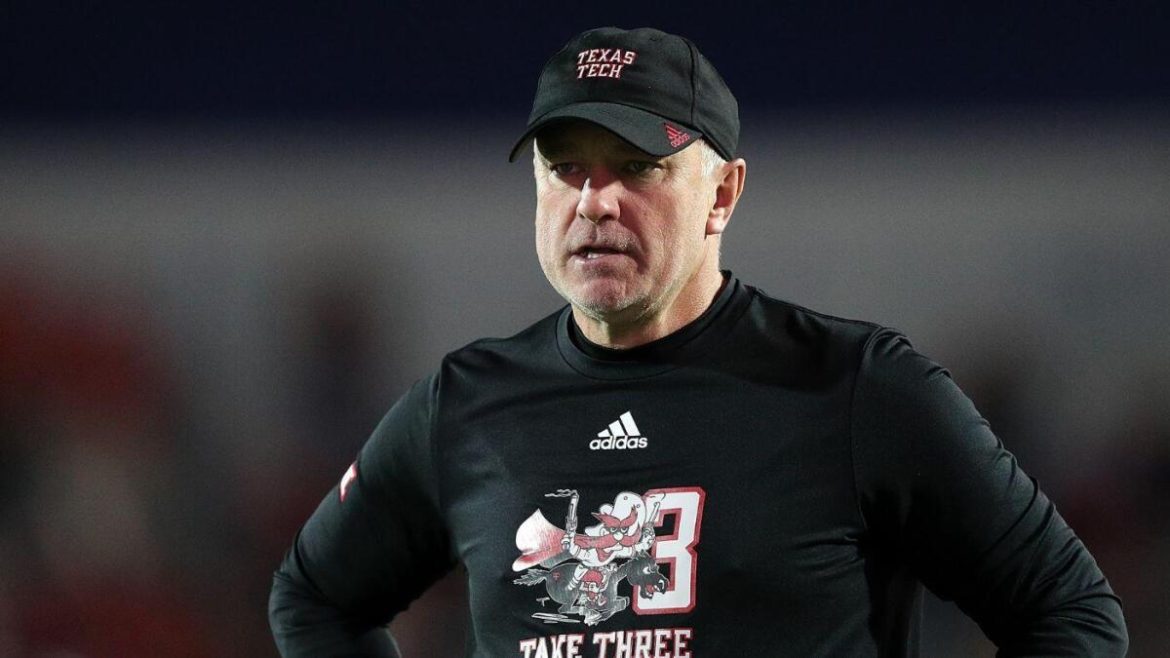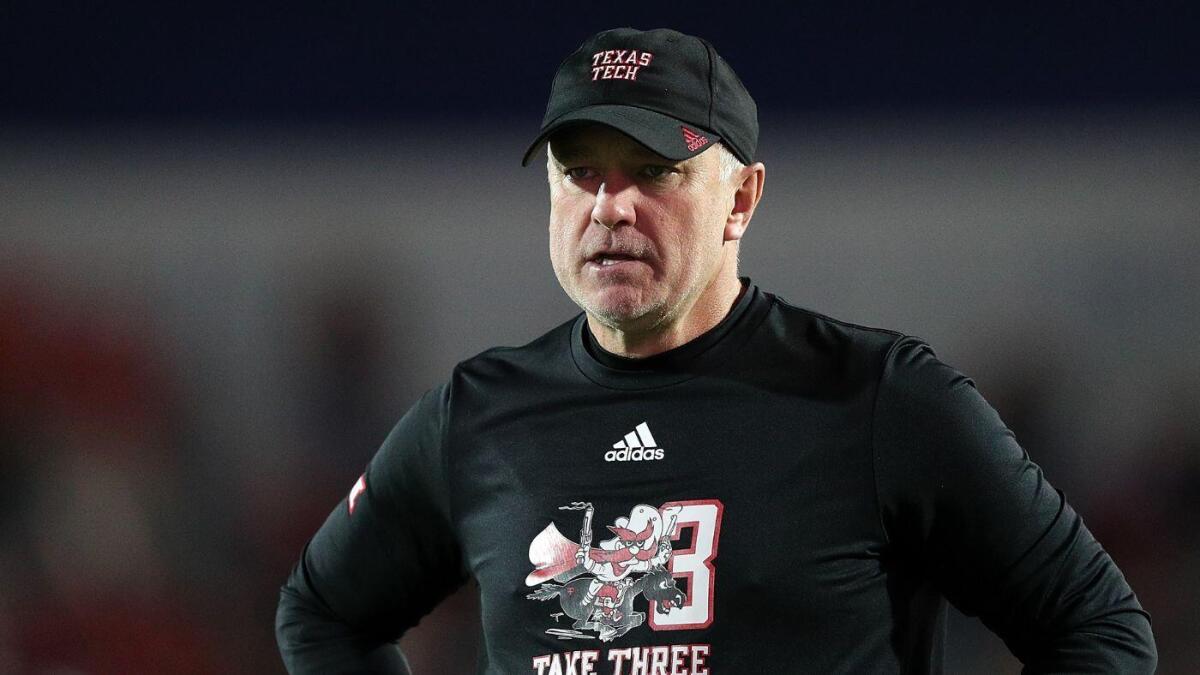Texas Tech’s Joey McGuire Challenges Conference Bias in College Football Playoff Debate
Setting the Stage: The Conference Bias Conversation
The College Football Playoff (CFP) format has sparked ongoing debates among coaches, analysts, and fans, especially regarding the perceived advantages held by certain conferences, mainly the Southeastern Conference (SEC) and the Big Ten. Texas Tech’s head coach, Joey McGuire, has become a prominent voice in this controversial dialogue, vocally rebuking what he sees as entrenched “conference bias” that potentially skews playoff selections and narratives. His perspective touches on fairness, competitive integrity, and the true measurement of team merit.
McGuire’s Core Argument: Settling Scores on the Field
At the heart of McGuire’s position is a call to return to the basics of competition: “Let’s fight it out on the field.” He criticizes the subjective nature of the CFP committee’s deliberations, especially when the strength of conferences is used as a proxy for team quality or a justification for selections. McGuire insists that the debate should be less about reputations tied to conferences and more about what teams prove through direct competition on the gridiron.
This viewpoint challenges the status quo where power conferences like the SEC and Big Ten often enjoy reputational benefits that influence CFP selections despite occasional inconsistencies. McGuire’s direct language — urging for a meritocratic approach — resonates with many who perceive the playoff system as favoring traditional marquee conferences.
Evidence of Bias and Its Implications
McGuire’s comments have gained traction amid contentious CFP discussions that often spotlight the SEC versus Big Ten rivalry, which dominates the playoff landscape. The conversation is layered:
– Subjective Strength-of-Conference Evaluations: Committees weigh schedules and conference strength, but such assessments can be biased or overly reliant on historical or brand prestige rather than current on-field performances.
– Playoff Access: Teams in less-heralded conferences or those emerging programs (like Texas Tech in the Big 12) feel disadvantaged, as their wins might not carry equal weight in committee eyes.
– Recruitment and NIL Impact: McGuire’s program, with significant investments and top-rated transfers, underscores that talent acquisition alone does not guarantee respect or playoff consideration without the opportunity to prove rankings in head-to-head competition.
This systemic issue can limit competitive balance and fuel fan frustration, as teams may feel they must over-perform simply to receive equal consideration.
McGuire’s Broader Stance on Fair Competition
Beyond criticizing the CFP format, McGuire has actively signaled his commitment to fairness and respect for the game’s integrity. This is evident in his urging Texas Tech fans to stop throwing debris during games, emphasizing sportsmanship and control.
Additionally, he has not shied from calling out officiating issues, which he sees as another layer of fairness to be maintained in contests. His candor about officiating “being better” after a critical loss to Colorado reflects an insistence that all factors on game day should allow teams to fight on an even playing field.
Impact on Texas Tech and the Big 12 Landscape
Joey McGuire’s vocal stance enhances Texas Tech’s reputation as a team and program refusing to accept perceived injustices passively. By assembling a roster that can “go toe-to-toe with anyone in the Big 12,” including landing many top-rated transfers, he sends a message: Texas Tech is rising, demanding respect not simply based on conference prestige but on a demonstrated capacity to win.
This leadership approach has significance beyond Texas Tech:
– It contributes to shifting the narrative of the Big 12 as a competitive conference capable of producing CFP-worthy teams, countering the SEC and Big Ten dominance.
– It pressures CFP decision-makers to reconsider metrics and to potentially evolve playoff structures or evaluation criteria for greater inclusivity and objectivity.
– It underlines a broader collegiate athletic trend where coaching voices increasingly assert the need for equity and transparency in the sport’s ever-commercializing environment.
Conclusion: The Call for Authentic Competition and Fairness in College Football
Joey McGuire’s vocal opposition to perceived conference bias within the College Football Playoff format champions a return to authentic on-field competition as the ultimate arbiter of team success. By eschewing reputational shortcuts and advocating for merit-based assessments free from systemic prejudices, McGuire captures the frustrations and aspirations of many programs outside the traditional power bases.
His message “Let’s fight it out on the field” distills the timeless appeal of sports — that true determination, skill, and resilience should dictate rankings, not legacy or subjective committee preferences. As college football continues to evolve, voices like McGuire’s will shape dialogues and decisions that could redefine competitive fairness and historic playoff narratives for years to come.





